#Workout Tips
Explore tagged Tumblr posts
Note
hey, sorry, but i was wondering how you started on your fitness journey? i'm in a similar spot that you were two years ago and i want so badly to make the progress you have. i keep trying to begin but stopping because i get too scared or nervous, it's so daunting. do you have any good resources like websites/videos/youtube channels/blogs/etc.? i would really appreciate it. you look awesome and your post was super inspiring.
No apologies needed! It is pretty daunting man because it's getting into it for the long run.
Before I finally stuck with it I started and stopped several times in the past as well. If I were to give short tips personally on how to get started based on how I did:
-Start with the most simple thing for you and focus on building a habit out of it. Whatever that is, do it even if you don't want to. For me, I started with a scheduled walk around a trackfield (one full loop around the track) twice a week.
-Take the time to really outline your goals. Make sure to include short term goals and not only long term ones! It helps to say "I'm gonna walk for 5 minutes" and building up to the goal of "I'm gonna walk for 60 minutes", for example. Additional: having something visual can help with tracking it.
-Take it slow, and keep it simple. You're in this for the longhaul. And it will be very slow, but trust the progress and focus on the present
------------------------
As for resources, these are what I used (with some notes if it helps!)
Jeremy Either's Youtube Channel
Great source of information in regards to many things, particularly muscle building. I already had a base understanding of working out due to my sports background, but he's great for complete newbies and for anyone who needs a refresher. I still watch his stuff today but I don't rely on it nearly as much now that I have a better idea of what I'm doing.
Hybrid Calisthenics Youtube Channel
Fantastic channel for complete beginners and for people looking to get into the swing of things again, but at a slower rate. He focuses on being genuinely positive and encouraging finding ways that'll work specifically for you. That includes doing variations of exercises that may be too hard at first, like variations of the pushup, or pullup. Simple routines to get you started without destroying yourself. Very good channel, honestly.
Sean Nalewanyj Youtube Channel
He was the first fella I followed before I found Jeremy. His content is short, punctual, and easy to understand, so if you're looking for much quicker advice without the super detailed explanations his YT Shorts would be recommended. You'll likely have to do a little more research on your own to supplement the knowledge though. Like Jeremy I still watch his content.
Jeff Nippard Youtube Channel
His content is chocked full of research based shit and sometimes can be a tiiiiny bit much to follow, so not really something I'd recommend for beginning lifters. That said, his content in general is downright fascinating and if you're looking for in-depth analysis on the world of bodybuilding, powerlifting, and so on, he's my go-to.
Leanbeefpatty Youtube Channel
Her content is far more vlog-ish, but she gives solid advice while simultaneously just being fun to watch. I like how much more relaxed her stuff is as well, so if you're looking for something that isn't as potentially stressful I'd recommend her over anyone else listed.
Eugene Teo Youtube Channel
I've only just started watching him a couple of months ago but he's been a joy to listen to. His content is relatively chill but he gives indepth explanations without getting too science-y with them. He also promotes things other than fitness that'll help with your goals; stuff like mindful hobbies, healthy food-relation habits (for example: there's no such thing as a good or bad food), so on.
----------------
Other sources I've used to help educate myself the more I got into it include MyFitnessPal (I use it to count my calories and macros), Healthline, countless other youtubes I won't list just so I don't talk your ears off, and asking for tips from fellow gym goers who attend the same gym I do.
I hope these are of some help to you! And keep up the grind; take it one step at a time, and if you need any more advice you think I can help with I'm all ears. I'm rootin' for ya! :)
254 notes
·
View notes
Text







Links coming soon!
🤍
#this is a girlblog#girlblogging#it girl#self concept#self care#that girl#self growth#glow up#coquette dollete#coquette#becoming that girl#girly tips#it girl energy#digital journal#dream girl#it girl aesthetic#beauty tips#workout tips#coquette aesthetic#pink pilates princess#that girl aesthetic#self development#manifesting#girl blog aesthetic#divine feminine#divine feminine energy#beauty affirmations#it girl affirmations#affirmations#spirituality
28 notes
·
View notes
Text
workout tips that work (from someone who isn’t trying to sell you anything) vvv
(look, half of these are common knowledge, but they weren’t common to me when i started! 😭)



eat beforehand! i’m not telling you to devour a whole cake or anything, but food really is fuel and you’ll get a lot more done in your workouts with real energy behind you instead of an energy drink.
if you’re walking, especially if you’re just starting out, please wear proper footwear. double sock it if you have to! you are not immune to blisters, and exercise shouldn’t feel like walking on hot coals!
if you struggle with how long to work out, put on an album you like! really helped me stay focused/motivated when i wanted to give up.
don’t push yourself too hard! yes, push your limits, but not to the point you burn out. no one wants to work out 7 days a week, take your rest days! (and, yes, this includes walking. the period where i got 10k steps in every day left me with blisters for weeks. good lord are those not fun)
remind yourself why you started. this one is so important! was it to gain muscle, to stay healthy, for a hobby? all of these are completely valid reasons, and possible. stick to it for yourself!
stay safe, my lucky stars! 🌟
#⭐️ - blogging#💫- working out#workout#workout tips#girl blogger#girlblogging#girl diary#wonyoungism#self improvement#self care#this is a girlblog
13 notes
·
View notes
Text
Hejka wszystkim
Chcialam tylko powiedziec ze jak nie chce wam sie spacerowac, bo zbiza sie majowka i np w takie poludnie lub popoludniu jest bardzo cieplo to pojdzcie na rower serio w te poltorej czy dwie godziny spalicie duzo duzo wiecej niz bedac na spacerze a poza tym przynajmniej mi zawsze jest jakos bardziej przyjemnie dlatego zamiast wychodzic na spacery to ide na rower i nie jest az tak duszno bo zazwyczaj wieje wiatr
Takie 17 kilometrow na rowerze zajmuje okolo godziny 10 minut a spalacie wtedy okolo 540 kalorii +/- mniej wiecej bo oczywiscie zalezy od wagi
#nie jedz#@tw edd#@anadiary#@na motivation#@na vent#gruba świnia#nienawidze siebie#nienawidze swojego ciała#workout tips#weight loss tips
14 notes
·
View notes
Photo
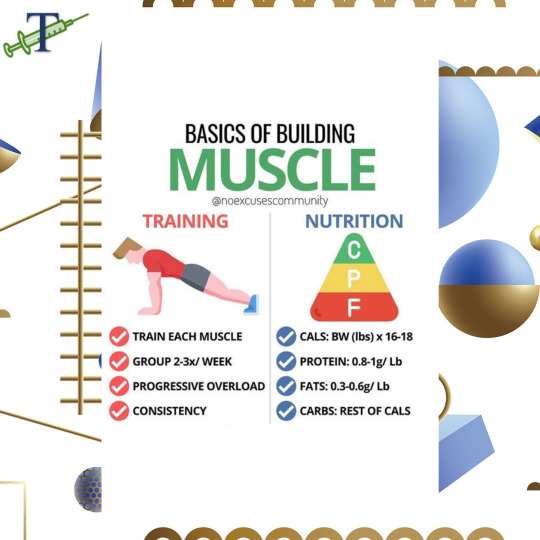

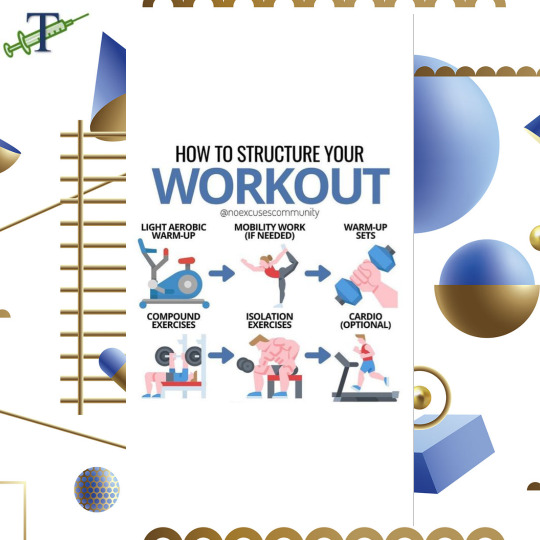
Fitness Friday- Tips for Getting the Most from Your Workout
#Fitness Friday#sensible-tips#FTM#F2M#transmasculine#transmasc#trans man#transgender man#non binary#genderqueer#genderfluid#agender#bigender#demiboy#FTM fitness#FTM health#FTM wellness#FTM workout#exercise tips#workout tips
81 notes
·
View notes
Text




Workout goals 🖤
#fit black girls#pilatesworkout#pilates princess#fitness#healthy#fitness tips#fitness trainer#gym motivation#gym rat#gymlife#gymmotivation#gymbabe#workout#gym life#working out#workout tips#personal trainer#my post#my photos#my pics#gym body#cross fit#crossfit#fit girls#black fitspiration#sports#fitmom#fit model#fit mom#sporty
52 notes
·
View notes
Text
instagram
GYM MOTIVATION VIDEOS FOR YOU
Support guys to grow together, Follow me , Like , Share and comment----
@themuscleblog @muscle-gym-bodies @gym @gymandmotivation
@fitnessfor-me @fitness-barbie @fitnessmotivationblr @fitnessmotivationsecrets @girlsgonetmblr
#bodybuilder#fitness gym#fitnessbody#gymlover#gymmotivation#gymrat#workout#workout tips#fitness#gym#ifbbphysique#flexing#sexymuscle#muscle arms#muscles#muscular#gym body#posing#athlete#gymvideo#fitnessreels#fitspo#fit#sportperson#Instagram#health & fitness#asthetic
3 notes
·
View notes
Text
How Can I Build Muscle Fast?

Building muscle fast requires a disciplined combination of training, nutrition, recovery, and consistency. Whether you’re a beginner or looking to optimize your current routine, this guide will help you maximize muscle growth effectively.
1. Strength Training: The Foundation of Muscle Growth
Key Principles:
Progressive Overload: Gradually increase the weight or resistance you use to challenge your muscles. This stimulates growth over time.
Compound Movements: Focus on exercises that work multiple muscle groups, such as squats, deadlifts, bench presses, pull-ups, and rows.
Reps and Sets: Perform 3–5 sets of 8–12 reps for each exercise, which is optimal for hypertrophy (muscle growth).
Training Frequency: Target each muscle group 2–3 times a week for faster results.
Sample Workout Split:
Day 1: Chest and Triceps
Day 2: Back and Biceps
Day 3: Legs and Core
Day 4: Rest or Active Recovery
Day 5: Repeat Days 1–3
2. Nutrition: Fuel for Muscle Growth
Key Principles:
Caloric Surplus: Consume 250–500 calories more than your maintenance level daily to support muscle growth.
Protein-Rich Foods: Eat 1.6–2.2 grams of protein per kilogram of body weight daily. Include lean meats, eggs, dairy, beans, and protein powders.
Carbohydrates for Energy: Choose complex carbs like oats, quinoa, rice, sweet potatoes, and whole grains to fuel workouts and recovery.
Healthy Fats: Incorporate fats from sources like avocados, nuts, seeds, and olive oil to support hormone production.
Meal Timing: Eat a balanced meal 1–2 hours before and after workouts for optimal performance and recovery.
3. Recovery: Essential for Muscle Repair
Key Principles:
Sleep: Aim for 7–9 hours of quality sleep each night to allow muscles to repair and grow.
Rest Days: Take at least one full rest day per week to prevent overtraining and support recovery.
Hydration: Drink enough water to keep your body functioning optimally and aid recovery.
Stretching and Mobility: Incorporate stretching or foam rolling to reduce soreness and improve flexibility.
4. Supplementation: Enhance Your Progress
While whole foods should be your primary nutrient source, supplements can help fill gaps in your diet:
Protein Powder: Convenient for meeting daily protein needs, especially post-workout.
Creatine Monohydrate: Boosts strength and supports muscle growth.
Branched-Chain Amino Acids (BCAAs): May reduce muscle soreness and improve recovery.
Caffeine: Provides energy and enhances performance during intense workouts.
5. Track Your Progress
Key Metrics:
Workout Log: Record your exercises, weights, sets, and reps to ensure you’re progressing.
Body Measurements: Track your chest, arms, legs, and waist to monitor muscle growth.
Photos: Take progress pictures every few weeks to visually assess changes.
Weight: Weigh yourself weekly to ensure you’re gaining muscle, not just fat.
Click here to Read A Blog- Wellhealth how to build muscle tag | wellhealthorganic
6. Stay Consistent and Patient
Building muscle fast doesn’t mean overnight results. It requires discipline and consistency:
Stick to Your Plan: Follow your workout and meal plans consistently.
Adjust as Needed: If progress slows, increase calorie intake, tweak your workout routine, or add more rest.
Avoid Overtraining: Give your body time to recover to prevent burnout and injuries.
#Muscle Building#Strength Training#Nutrition for Muscle Growth#Fast Muscle Gain#Workout Tips#Fitness Goals#Recovery and Rest
2 notes
·
View notes
Text
I was reading study tips and came across one that made me mad.
It says “we all procrastinate our school work by saying we’re tired and not motivated. And look at how much time we waste when we could be productive and study. So erase those excuses and take out all your distractions and start studying!”
I’m gonna preface this rant with: this doesn’t apply to everyone, some people procrastinate their work because they just don’t want to do it, and I’m guilty of having done that, I’ll admit it, and some people need to push themselves harder about doing their work, for some people this may be helpful advice, but it’s not for me and it pisses me off, so with that out of the way I’m gonna rant (under the cut cause this got much longer than intended)
It pisses me off so bad because of all the years spent being told that I’m just lazy and I need to stop making excuses and try harder, when I’m reality I was trying so fucking hard but for some god damn reason I just fucking couldn’t. I couldn’t just white knuckle my way through it, no matter how hard I tried, it didn’t fucking work, and I was left more exhausted and stressed out then I was before. I’ve since learned that trying to force myself to work when it clearly isn’t working for whatever reason was doing way more harm than good, so was framing it as laziness and failure in my mind. The best way for me when I’m exhausted/burnout/depressed/dealing with executive dysfunction is sometimes to just stop. It doesn’t matter that I really need to get this done, or that I’m behind, or anything else, I need to take a break, and eat something/drink something/shower/sleep whatever has to happen for me to reset. Doesn’t matter what it is, but something besides “grit your teeth and deal with it” needs to happen. It has been instrumental in dealing with stuff, especially school. Doing this has helped to both stave off the burnout so that I’m dealing with a lighter version, and it takes longer to set in, it also makes it easier to deal with when the burnout hits, it’s also a good policy for depressive episodes. I’ve also noticed that letting myself take breaks and rests has allowed me to get more work done, knowing that I can rest if I need to is incredibly helpful
Now, the work has to get done eventually, so here’s my advice if you’ve made it this long, I applaud you you’re a wonderful being
So the original post was trying to give you tips on not procrastinating, so here’s some that actually kind of work for me.
1. Do work ahead of time, when you have the extra spoons and time to dedicate to school and studying, do it, even if you’re all caught up on homework and notes, work ahead, you’ll be thanking spoonful you when that bad episode hits and you aren’t falling as far behind
2. Because sometimes episodes last a long time and you are still required function in society, try making a time limit. I saw a great post once about it, but basically set a limit for 50 minutes of work (or however long you can reasonably expect yourself to work and focus) and then take a ten minute rest, then set a timer for forty minutes of work (or ten minutes less then your of time) and then ten minutes rest, then thirty minute timer, you get the just, just keep going til you run out of time, it works for me, helps me get work done, setting timers makes me feel like I’m racing the clock to finish Task is that time so I can start a new one when the next timer starts. Another way to do this if you don’t like this method is an adaptation of STPs, basically, work for twenty minutes, break for ten, work for twenty, break for ten, repeat ad infinitum, or as long as necessary. Shoot for five reps, ten if you’re really going for it. Honestly, there’s a lot of interesting workout reps that you can’t turn into study things, I suggest looking at some, especially if they’re already part of your workout routine and you know they work for your there, cause that’s a better chance of them working for you here
3. Make it fun. A lot like timers, if you’re trying to beat someone/something then it can add dopamine to the activity, so you’re more likely to do it. I recommend this video which detail a quest type system to keep you on track, it can’t be translated to studying with both the original how ever much you do gives you points to use against the monster, or the way I do with both the og and bonus points for getting good grades on homework/tests, whatever works for you
3a. You can also try making a friend/rival in class you’re trying beat, I am a big proponent for what friendly competition can do for you. (This can also set you up for a slow burn rivals to lovers college au, so you know, bonuses)
All I got for now, but I may add more later.
#studying#workouts#study tips#workout tips#college tips#school tips#angry rants#adhd#adhd brain#neurodiverse stuff#nuerodivergent#its the neurodivergency#neurodivergent#neurospicy#that’s right bitches I’m spicy#burnout#depresión#depression#realistic mental illness#mental illness tips#anxiety#neurodivergent tips#from a real life neurodivergent#I hope this helps#and don’t fucking come at me#I’m well aware this doesn’t apply to everyone#but it applies to me#maybe it applies to some other people who just want to hear from someone else that they’re not lazy and it’s okay that they need extra help#it’s fine#gods know I could’ve used some of this stuff
46 notes
·
View notes
Text

7 minutes hit workout
2 notes
·
View notes
Text
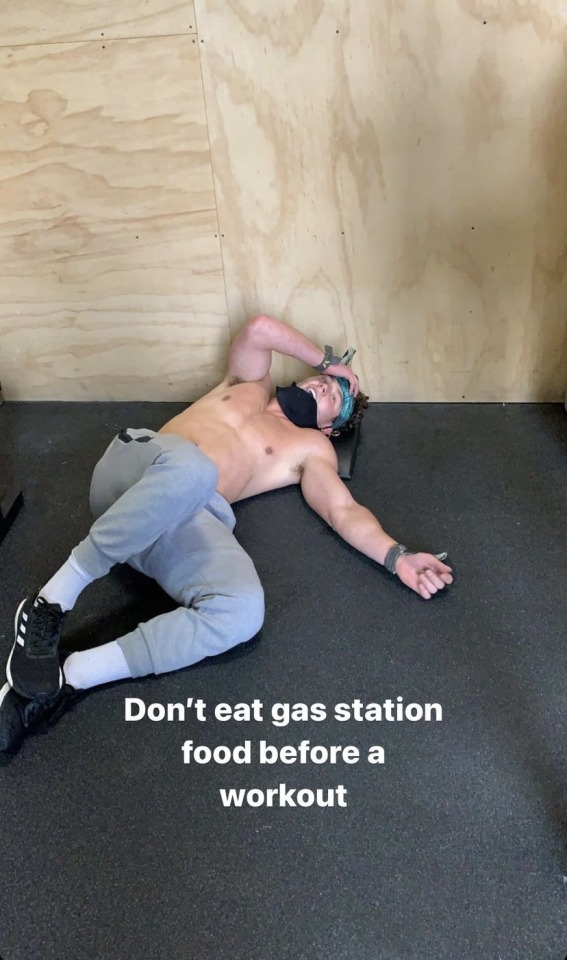
Seems like good advice to me…but I wasn’t really even considering it.
#shirtless#muscle#jock#college jock#college dude#college guy#frat bro#baseball jock#baseball player#armpits#mask#face mask#workout#workout tips#dalton dean chandler
21 notes
·
View notes
Note
Woah you look so cool! Do you have any tips on weightlifting?
Why thank you! ;w; As for tips for weightlifting?
Hmm. I'm gonna limit myself to 5 just so I don't yammer your ears off! So my top three tips for weightlifting:
-Focus on form over heavy weights. It's true you gotta lift heavy to get stronger, but having good form is what's gonna allow you to lift heavy with max efficiency WITHOUT hurting yourself. Ego-lifting is the quickest way to destroying your gains. Do what you can, and not what you think you should.
-Establish a routine. This is easily the biggest gamechanger for me: I stopped guessing and winging it. I recommend choosing a workout split of your liking (example: Fullbody, PPL, Upper/Lower), the number of days you're going (and what those days are), choosing your workouts for each day beforehand, and keeping a lil log book so you can keep track of your sets, reps, and weights you used during each workout. Stick to that training block for at least 5-8 weeks and see how it works for you.
-Don't forget to REST. Your muscles don't build when you're at the gym, they build when you rest. You need to allow adequate time for rest, which includes managing stress levels and getting enough sleep every night. You gotta allow yourself some reprieve, so don't be afraid to allow it.
-Time your rest intervals after each set. Instead of just going about your time, give yourself a timer for your lifts so you can be more efficient. Gym is great, but you don't wanna be in there all day! Rest as long as you need to, but a rough baseline of times are as follows:
For isolated lifts (ex: Bicep curls, leg extensions): 1-2 minutes
Compound lifts (ex: Bench, Squat, Deadlift): 3-5 minutes
and finally:
-Lift close to failure. And I mean legitimate failure. Not when the discomfort (not pain, discomfort. If you feel pain, stop) kicks in, I mean you can't physically lift the weight sort of failure. Don't do it all the time; you can get good gains from lifting 2-3 reps in the tank, but in order to know that, you gotta lift hard to know where your true failure is. Ask for a spot for when you wanna try your limits for safety, but if you don't want to do that, a good baseline is this: if you aren't making a stupid face, or involuntarily grunting, or thinking in your head "BRUHHHHHHHH" you probably aren't lifting heavy enough. If your reps look exactly the same throughout all three sets without slowing down once, you probably aren't lifting heavy enough. I will reiterate to first get your form down pat before doing this, but once you're comfortable in the lift? It's game time.
------
I hope this helps some! Get them gains, bro >:)
94 notes
·
View notes
Text
Train less if you want a great physique and to avoid a plateau
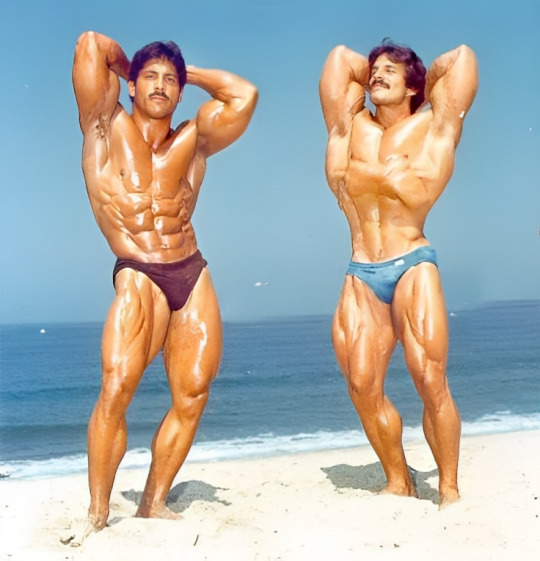
Experience
I have been a fitness enthusiast for at least four years and I have loved the ups and downs of my journey, It’s an unending path toward discovery, frustration, learning, and unlearning, I have also accepted the fact that the continuous pursuit of this lifestyle has made me a student that will always keep on sharing and absorbing the experiences and the knowledge that this lifestyle has taught and kept on teaching me, not only form the resources that I have found but also through the people who’s been through this commitment longer than I was. Throughout this path of lifestyle I took, I have stumbled upon a recent discovery that has been practiced since the 1970s: “Mike Mentzer’s Heavy Duty Training.” Mike Mentzer, along with his brother Ray Mentzer, introduced the high-intensity training philosophy, a method that emphasizes shorter, more intense workout sessions with a focus on progressive overload, intensity, and allowing sufficient time for recovery, this approach also emphasizes the importance of avoiding overtraining by providing adequate recovery time.
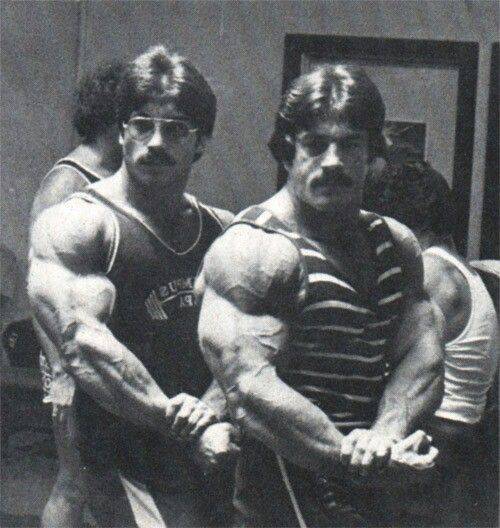
The Training Explanation:
Provided below are the reasons and the scientific explanations on how this approach will maximize the hypertrophy and performance of our muscles especially if you’re an athlete, I’ll also include the resources and where I have read those resources. The philosophy behind Heavy Duty Training is rooted in the belief that short, intense workouts, when done with proper form and focus, can be more effective for stimulating muscle growth and strength gains compared to longer, less intense workouts. It also emphasizes the importance of avoiding overtraining by providing adequate recovery time.
A. Shorter Workout Duration
Heavy Duty Training promotes shorter workout sessions, typically with fewer exercises and sets than traditional training methods. The emphasis is on quality over quantity, with a focus on high-intensity efforts during each exercise.
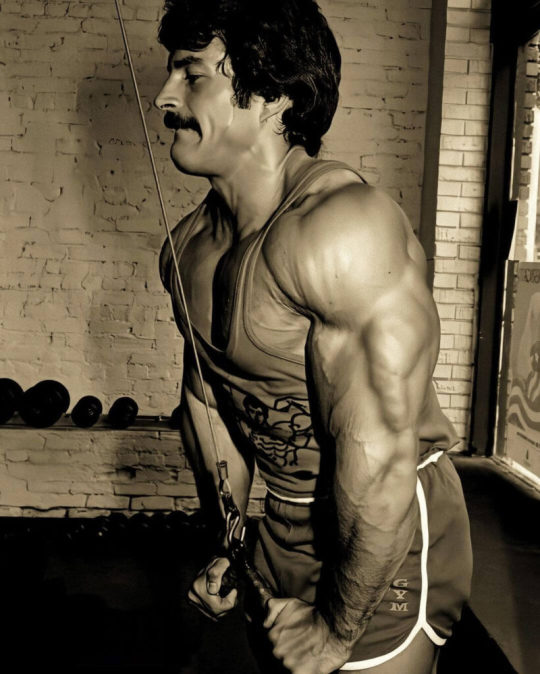
1. Hormonal Response: Short, intense workouts have been shown to elicit a favorable hormonal response, including an increase in growth hormone and testosterone levels. These hormones play crucial roles in muscle growth and repair. 2. Myofibrillar Hypertrophy: Intense resistance training, especially with heavy loads, is associated with myofibrillar hypertrophy. This type of muscle growth involves increasing the number of contractile proteins within muscle fibers, contributing to strength and power. 3. Increased Neural Activation: High-intensity training recruits a greater number of motor units and enhances neural activation. This can lead to improved strength gains and more efficient muscle fiber recruitment during subsequent workouts. 4. Enhanced Metabolic Rate: Intense exercise, particularly resistance training, has been linked to an increased post-exercise metabolic rate. This means that the body continues to burn calories at an elevated rate even after the workout is completed, contributing to fat loss and weight management. 5. Improved Insulin Sensitivity: Intense exercise has been shown to enhance insulin sensitivity, potentially reducing the risk of insulin resistance and type 2 diabetes. Improved insulin sensitivity facilitates better nutrient uptake by muscles. 6. Efficient Time Management: Shorter workouts are often more time-efficient, making it easier for individuals to adhere to their exercise routine consistently. Consistency is a key factor in achieving long-term fitness goals. 7. Reduced Risk of Overtraining: Shorter, more intense workouts may help prevent overtraining by minimizing cumulative fatigue and reducing the risk of excessive stress on the central nervous system. 8. Elevated EPOC (Excess Post-Exercise Oxygen Consumption): High-intensity workouts lead to increased oxygen consumption after exercise, known as EPOC. This phenomenon contributes to additional calorie expenditure and fat oxidation during the recovery period. 9. Mitochondrial Biogenesis: Intense exercise has been associated with mitochondrial biogenesis, the process by which new mitochondria (the cell’s energy producers) are formed. This can enhance endurance and overall energy metabolism. 10. Maintenance of Muscle Glycogen Levels: Shorter workouts help preserve muscle glycogen levels, reducing the need for extended recovery times. This is particularly relevant for individuals engaged in resistance training or high-intensity interval training (HIIT).
B. Progressive Overload
Is a fundamental principle in strength and muscle development. In Heavy Duty Training, the goal is to continually increase the intensity or resistance over time to challenge the muscles and promote growth. This can be achieved by progressively adding weight to exercises or increasing the difficulty in other ways which involves systematically increasing the intensity or resistance of training and has various physiological justifications that favor muscle growth and adaptation.
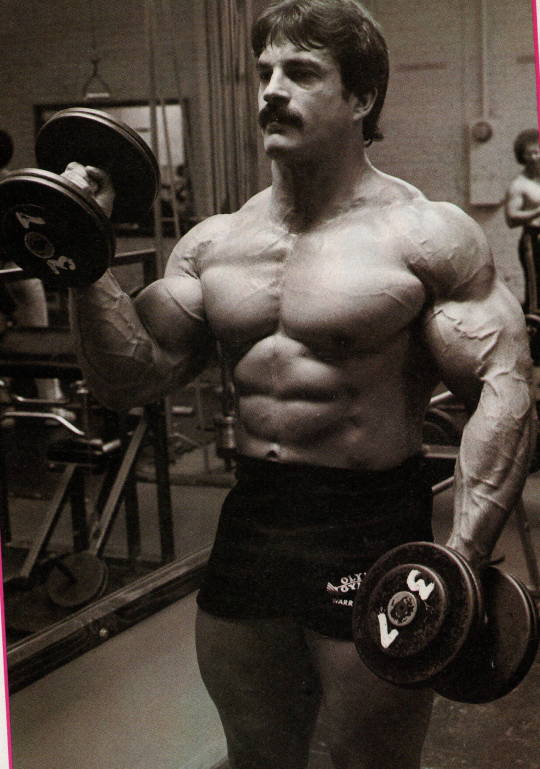
1. Muscle Fiber Recruitment: Progressive overload challenges the neuromuscular system, leading to the recruitment of more muscle fibers during exercise. This recruitment stimulates a greater proportion of muscle tissue, contributing to hypertrophy. 2. Microscopic Muscle Damage and Repair: Overloading muscles creates microscopic damage at the cellular level. The subsequent repair process involves the synthesis of new proteins, leading to muscle growth. This process is part of the adaptation to increased loads. 3. Hormonal Responses: High-intensity resistance training, characteristic of progressive overload, triggers hormonal responses, including increased levels of growth hormone and testosterone. These hormones play key roles in muscle protein synthesis and overall muscle development. 4. Cellular Signaling Pathways: Progressive overload activates cellular signaling pathways, such as the mTOR pathway, that regulate protein synthesis. These pathways are crucial for muscle adaptation and growth in response to mechanical stress. 5. Increased Protein Synthesis: Overloading muscles stimulates protein synthesis, the process by which cells build new proteins. This heightened synthesis contributes to muscle repair, maintenance, and growth. 6. Satellite Cell Activation: Progressive overload can activate satellite cells, which are specialized cells involved in muscle repair and growth. These cells contribute to the regeneration of damaged muscle tissue. 7. Myofibrillar Hypertrophy: The increased mechanical tension on muscles during progressive overload induces myofibrillar hypertrophy, referring to the growth and strengthening of the contractile proteins (myofibrils) within muscle fibers. 8. Increased Muscle Cross-Sectional Area: Progressive overload leads to an increase in the cross-sectional area of muscle fibers. This structural adaptation results in larger, stronger muscles. 9. Improved Motor Unit Recruitment: Progressive overload enhances the coordination and recruitment of motor units. As the body adapts to increased resistance, the nervous system becomes more efficient in activating muscle fibers, contributing to strength gains. 10. Mitochondrial Biogenesis: Resistance training, as part of progressive overload, has been associated with mitochondrial biogenesis. This process involves the creation of new mitochondria within muscle cells, enhancing energy production and endurance.
C. Intensity
Refers to the level of effort exerted during each set. Heavy Duty Training encourages individuals to push their muscles to near failure or momentary muscular failure which means performing each set until it becomes extremely challenging to complete the last repetition with proper form in the context of heavy-duty training it involves pushing the muscles to near failure or momentary muscular failure during each set.
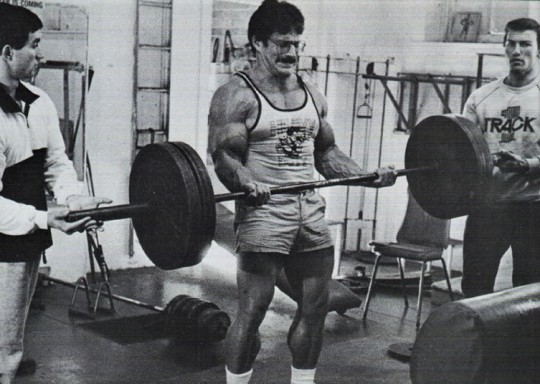
1. Muscle Fiber Recruitment: High-intensity training recruits a greater number of muscle fibers, including both fast-twitch and slow-twitch fibers. This maximizes the overall muscle engagement during the exercise. 2. Motor Unit Activation: Intense efforts activate more motor units, which are comprised of a motor neuron and the muscle fibers it innervates. This recruitment of motor units contributes to greater force production. 3. Metabolic Stress: High-intensity training creates metabolic stress within the muscles, leading to the accumulation of metabolites such as lactate. This stress has been associated with muscle hypertrophy and anabolic hormone release. 4. Hormonal Response: Intense exercise triggers the release of hormones such as testosterone and growth hormone, which play crucial roles in muscle protein synthesis and overall muscle adaptation. 5. Cellular Signaling Pathways: Intense resistance training activates cellular signaling pathways, including the mTOR pathway. These pathways are essential for muscle protein synthesis and muscle growth. 6. Lactate Threshold Improvement: High-intensity training can improve the lactate threshold, enhancing the muscles’ ability to tolerate and clear lactate during intense efforts. 7. EPOC (Excess Post-Exercise Oxygen Consumption): High-intensity training leads to a higher EPOC, which means the body continues to burn calories and undergo metabolic processes even after the workout, contributing to fat loss and energy expenditure. 8. Myofibrillar Hypertrophy: Intense resistance training, especially with heavy loads, can lead to myofibrillar hypertrophy, where the contractile proteins within the muscle fibers increase in size and number. 9. Improved Neural Adaptations: Training at high intensity enhances neural adaptations, improving the efficiency of the nervous system in recruiting muscle fibers and generating force. 10. Greater Mechanical Tension: High-intensity resistance training places a significant mechanical load on the muscles. Mechanical tension is a key stimulus for muscle growth and strength development.
D. Sufficient Time for Recovery:
Allowing sufficient time for recovery is a critical aspect of Heavy Duty Training. Since the workouts are intense, the muscles need time to repair and grow stronger. This often involves having a well-structured workout schedule that includes rest days and ensures that each muscle group gets adequate time to recover before being trained again.
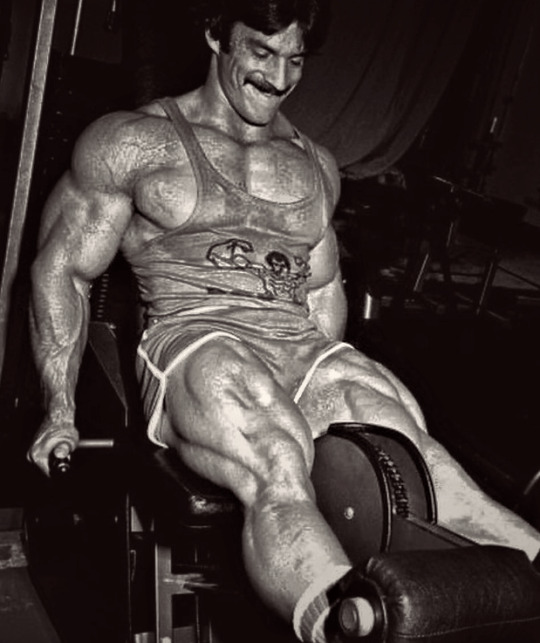
1. Muscle Repair and Growth: During exercise, especially resistance training, muscle fibers experience micro-tears. Adequate recovery time allows these fibers to repair and grow, contributing to muscle hypertrophy. 2. Hormonal Balance: Intense exercise, especially heavy resistance training, can lead to hormonal changes. Sufficient recovery helps maintain a balance in hormones like cortisol and testosterone, essential for muscle growth and overall health. 3. Energy Restoration: Recovery time allows the restoration of energy stores, such as glycogen in muscles and the liver. This is crucial for sustained energy during subsequent workouts. 4. Central Nervous System Recovery: Intense training can fatigue the central nervous system (CNS). Adequate recovery time is necessary for the CNS to recover, optimizing neural adaptations and enhancing strength gains. 5. Reduction of Exercise-Induced Inflammation: Exercise induces inflammation, which is a normal part of the muscle repair process. Sufficient recovery helps manage and reduce inflammation, preventing overuse injuries. 6. Prevention of Overtraining Syndrome: Overtraining can lead to a decrease in performance, increased risk of injury, and negative effects on overall health. Sufficient recovery helps prevent overtraining and its associated negative consequences. 7. Optimization of Protein Synthesis: Protein synthesis, the process by which cells build proteins, is elevated during recovery which is essential for muscle repair and growth. 8. Joint Health: Recovery time allows joints, ligaments, and tendons to recover from the stress of exercise, reducing the risk of overuse injuries and promoting overall joint health. 9. Enhanced Immune Function: Intense training can temporarily suppress the immune system. Adequate recovery supports immune function, reducing the risk of illness and infections. 10. Psychological Restoration: Recovery time is not only essential for physical restoration but also for psychological well-being. It helps reduce mental fatigue, prevent burnout, and maintain motivation for consistent training.
Evaluation
My body has undergone promising development since embracing Mike Mentzer’s Heavy Duty Training and the shift to shorter, more intense workouts has been a game-changer my muscles are responding like never before, and the focus on progressive overload has sculpted my physique in ways I never thought possible, the intensity of each session, pushing myself to the limits, has resulted in substantial gains in strength and size and I’m amazed at how efficient and effective this approach is — quality over quantity. The emphasis on recovery has prevented burnout, and I find myself consistently exceeding my fitness goals. Mike Mentzer’s philosophy has become my fitness foundation, and the results speak for themselves. It’s not just a workout; it’s a transformative journey, the strategic combination of shorter, high-intensity workouts and a focus on progressive overload has produced remarkable physiological adaptations my muscle fibers have undergone significant hypertrophy, showcasing the effectiveness of this approach, and also, the emphasis on maximal effort during each set has not only enhanced my strength but also triggered beneficial hormonal responses, promoting optimal muscle growth and the method’s attention to recovery aligns seamlessly with physiological principles, preventing overtraining and supporting long-term progress. My fitness journey hasn’t always been promising, there were times when I wanted to give up, due to the frustration of hitting my plateau countless times, and yes, you won’t always get the result that you want, it’s a long and defeating process especially when you’re someone who’s learning from mistakes but I am glad that this journey has kept on teaching me until now, and if you’re someone who seems to have hit their plateau, I highly recommend switching to this training method.
Sources:
https://www.artofmanliness.com/health-fitness/fitness/mike-mentzer-heavy-duty/
https://www.strengthlog.com/mike-mentzer-workout-routine/
https://www.muscleandfitness.com/flexonline/training/mike-mentzers-high-intensity-workout/
#physiology#wellness#fitness#gym#bodybuilder#body building#fitness tips#workout#workout tips#bulking
8 notes
·
View notes
Text
Some Tips I've Found Helpful For Working Out With Mental Illness
Because a lot of mental illnesses can rob people of the focus or motivation to go to the gym, there are some tips that I have—in my own personal experience—found helpful for staying active and keeping a semi-consistent workout routine through mental illness.
Having someone you know keeping you on track: Whether you call them a workout buddy, an accountability buddy, or another name, having someone to work out with you, or at the very least, remind you to work out, can give you the push you need to get started.
Investing in a gym membership: Going to the gym is ideal because you're in a space that requires you to do something active, so going to the gym is incredibly helpful. (I recommend planning what you'll do so you don't flounder too much.)
Signing up for classes: Ditto, with the added benefit of having instructions and/or an instructor or trainer to keep you on track.
Finding exercises you can do easily: There are many videos on YouTube for exercises you can do in bed or sitting down. It may be easier to start an exercise knowing it's simple to get ready.
Setting smaller goals: Sometimes, it's daunting to set the expectation of doing a full workout, especially when you're in a low mental state, but you don't have to push yourself to go all the way. If you can only convince yourself to do one repetition of your set instead of two or three, getting one done may motivate you to continue. And failing that, one is better than none.
Ultimately, sometimes we have to force ourselves to do unpleasant things we don't want to do for our health or well-being. But it's crucial to dig into your reasons for wanting to be healthy and pull yourself up to the task regardless instead of waiting to 'feel like it.' And I won't say that exercise is the only tool you need to combat mental illness; far from it. But I believe keeping a consistent exercise schedule improves one's overall mental state. Live well, everyone.
#health and exercise#health and fitness#workout motivation#fitspiration#fitness tips#workout tips#mental health
15 notes
·
View notes
Text
How to Bulk Up Woman: Reach Your Weightlifting Goals
Bulking up is a term that is used to describe the process of gaining muscle mass and strength. It is an important aspect of any fitness routine and is especially important for women. How do bulk up women? bulking up is the process of gaining muscle mass and increasing strength through a combination of diet and exercise. By increasing muscle mass, women can increase their metabolism, burn more calories, and reduce body fat.
10 notes
·
View notes